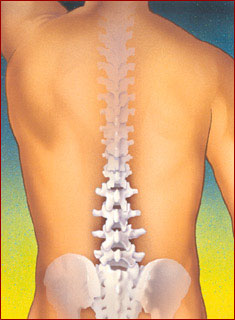Optimizing Spinal Health for a Pain-Free Life

Optimizing Spinal Health for a Pain-Free Life
Maintaining spinal health is crucial for overall well-being, impacting everything from mobility to daily comfort. In this article, we’ll explore key strategies for optimizing spinal health, ensuring a pain-free and active lifestyle.
Understanding the Importance of Spinal Health: A Backbone for Wellness
The spine serves as the central support structure for the entire body. It houses the spinal cord, a vital component of the nervous system. Maintaining spinal health is essential for proper posture, movement, and the overall functioning of the body. A healthy spine contributes to overall wellness and prevents various musculoskeletal issues.
Practicing Good Posture: The Foundation of Spinal Well-being
Good posture is fundamental to spinal health. Whether sitting at a desk, standing, or walking, maintaining proper alignment reduces stress on the spine and supporting structures. Ergonomic adjustments in workspaces and conscious efforts to stand and sit with correct posture contribute to the long-term health of the spine.
Regular Exercise for Spinal Strength and Flexibility: A Dynamic Approach
Engaging in regular exercise is crucial for spinal health. Specific exercises that target the muscles supporting the spine, such as core exercises, promote strength and flexibility. Activities like swimming, walking, and yoga contribute to overall spinal health by enhancing circulation, reducing stiffness, and supporting a healthy range of motion.
Ergonomics in Everyday Life: Creating Spine-Friendly Environments
Creating spine-friendly environments through ergonomic adjustments can significantly impact spinal health. This includes using supportive chairs with proper lumbar support, adjusting computer monitors to eye level, and lifting heavy objects using proper techniques. By incorporating ergonomics into daily life, individuals can minimize strain on the spine and reduce the risk of injuries.
Maintaining a Healthy Weight: Alleviating Stress on the Spine
Carrying excess weight places additional stress on the spine, particularly the lumbar region. Maintaining a healthy weight is beneficial for spinal health, as it reduces the risk of developing conditions like herniated discs and lowers the overall strain on the spine. Adopting a balanced diet and engaging in regular physical activity contribute to weight management and spinal well-being.
Prioritizing Spinal Alignment: Chiropractic Care for Health Maintenance
Chiropractic care is a valuable resource for optimizing spinal health. Chiropractors specialize in maintaining proper spinal alignment through adjustments. Regular chiropractic visits can address misalignments, alleviate discomfort, and enhance overall spinal function. Many individuals find chiropractic care beneficial in preventing and managing spinal issues.
Incorporating Stretching and Flexibility Exercises: Enhancing Mobility
In addition to strength-building exercises, incorporating stretching and flexibility exercises is essential for spinal health. Stretching helps maintain flexibility in the muscles and ligaments surrounding the spine, promoting a full range of motion. It is particularly beneficial for preventing stiffness and reducing the risk of injuries.
Hydration and Nutrition: Supporting Spinal Disc Health
Proper hydration and nutrition play a role in supporting spinal disc health. The discs between the vertebrae require adequate hydration to maintain their cushioning function. Staying well-hydrated and consuming a nutrient-rich diet that includes essential vitamins and minerals contribute to the overall health of spinal discs.







